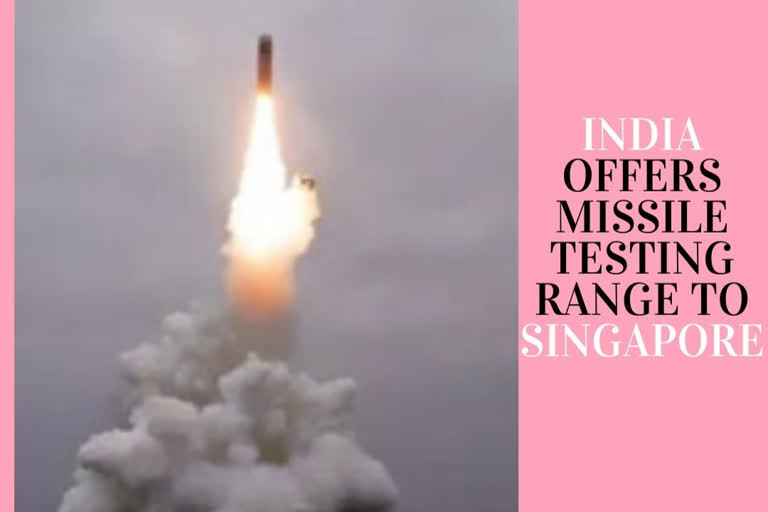New Delhi:For the first time ever, India may offer the use of its integrated missile testing range to a foreign country. Agreeing to it in principle, on Wednesday, India’s defence minister Rajnath Singh and his Singaporean counterpart Dr Ng Eng signed a ‘letter of intent’ to pursue the issue.
Limited by availability of land due to its small size, it would come as a boon to Singapore which already uses the Kalaikunda Air Force Station in West Bengal to train its military pilots in Indian Air Force’s Sukhoi 30 fighters.
The missile testing range is located at Dr Abdul Kalam Island, earlier known as Wheeler Island, off the Odisha sea coast in the Bay of Bengal. It is the testing site for most of India’s missiles including BrahMos, Prithvi, Agni, Akash, Astra, etc.
The development comes amid India-Singapore bilateral relations scaling new highs.
While India is wary of the growing ambitions of a powerful China, it is also aggressively pursuing the “Act East Policy”, the rechristened avatar of the earlier “Look East Policy”, a major government outreach effort to usher in a mutually beneficial economic relationship with the economically matured countries east of India—like Singapore for instance, by exploiting traditional cultural and historical ties.
While Singapore has a close military relationship with the US, it maintains close commercial relationship with China.
In August 2019, Singapore Prime Minister Lee Hsien Loong described the US as his country's “major security partner” as well as an important economic partner and source of investment and at the same time also pointed out to China as Singapore’s largest export market besides the common ethnic ties the people of both countries share. On the other hand, China has been more than keen to exploit Singapore’s large ethnic Chinese population to its own advantage by imposing a “greater China” identity.
The recently released US Congress 2019 report on the security and economic aspect of the China growth story says: “Singapore also has a strong security relationship with India and supports Indian engagement in Southeast Asia, particularly concerning India’s support for a Free and Open Indo-Pacific and its commitment to maintaining secure sea lines of communication between the Indian Ocean and the South China Sea”.
“While Singapore maintains a balanced relationship with China and has conducted training with the PLA, it allows the United States, Australia, and New Zealand to maintain a routine naval presence in the country”.
Interestingly, Indian and Chinese militaries will undertake a joint counter-terror exercise named ‘Hand-in-Hand’ in Meghalaya in December where about 130 troops for both sides will take part. The last edition of the exercise was held in Chengdu in China while there was no exercise in 2017 because of tense relations over the Doklam stand-off.
Article by Sanjib Kr Baruah
Also Read: LIVE: Law Minister to table key papers in RS today
